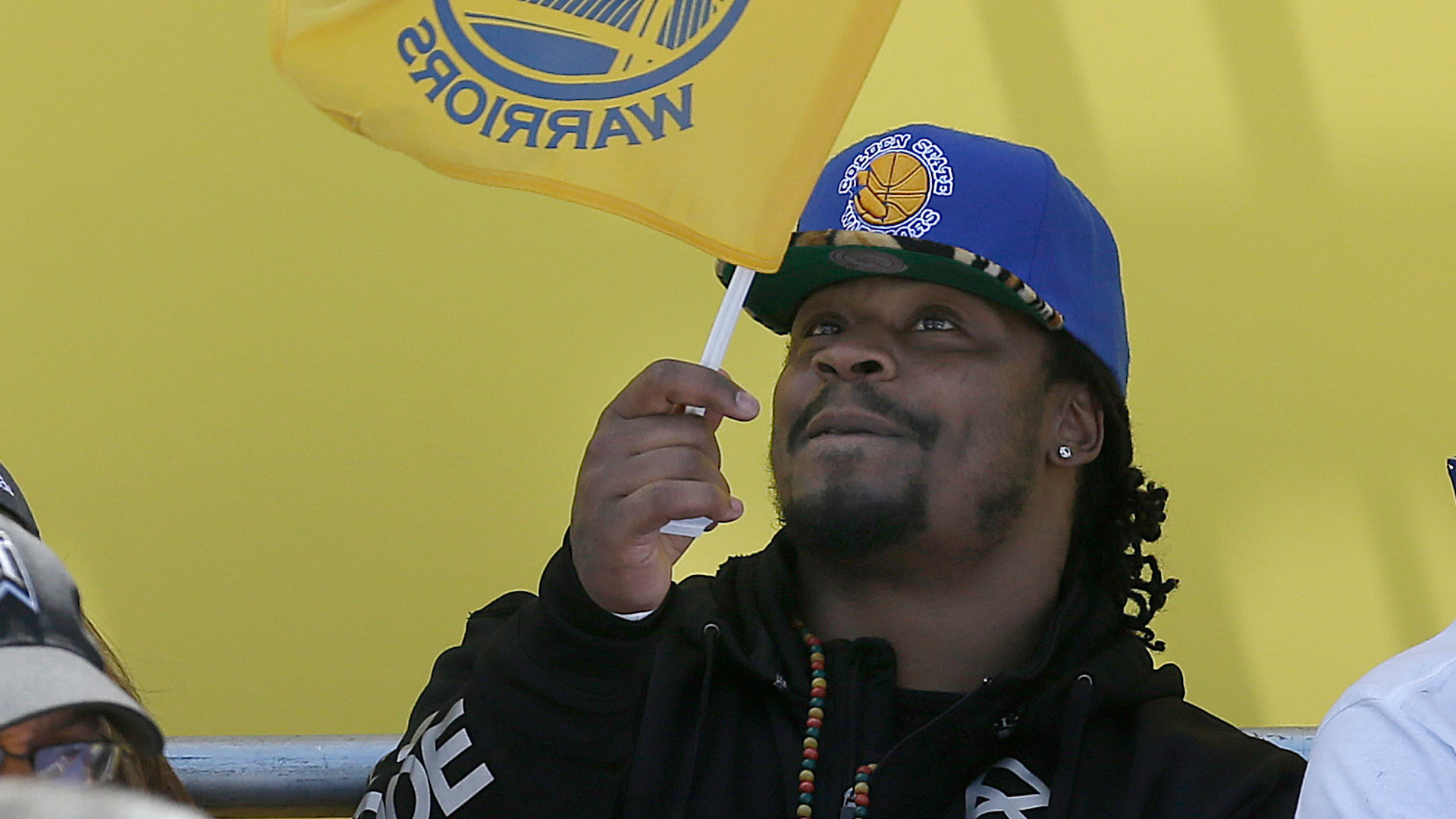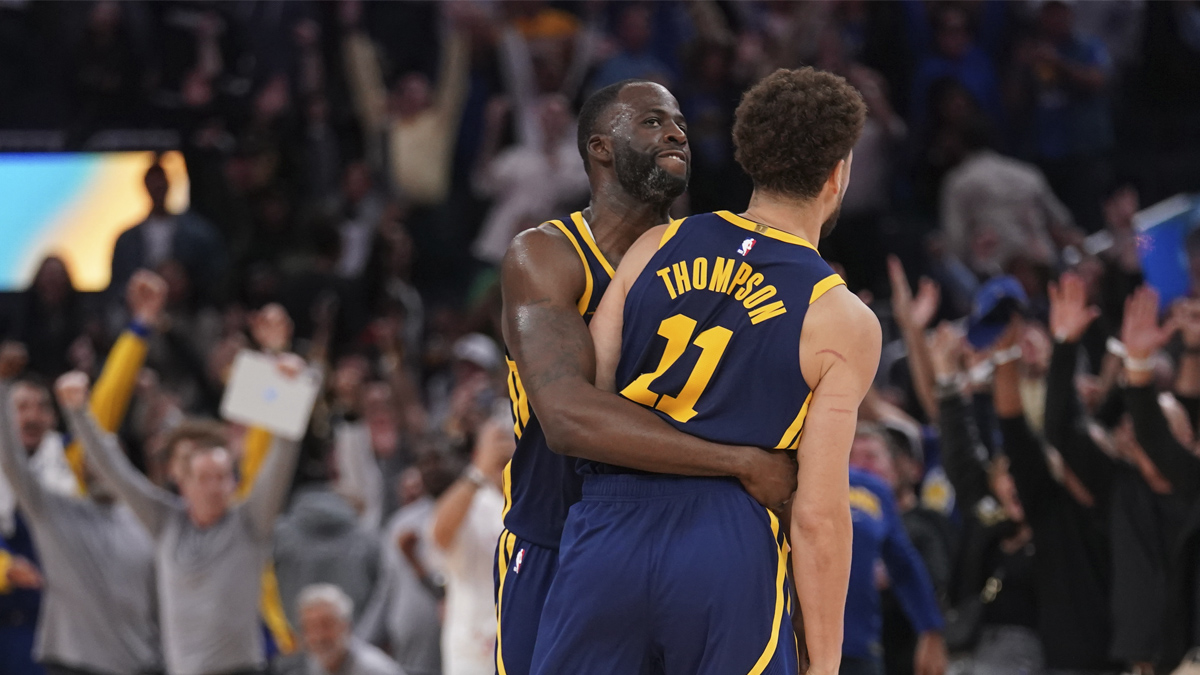This season has been unlike any other the Warriors have experienced. After decades of trying to raise the bar and always failing, they finally achieved that goal over the past seven years – only to have that bar come crashing down in 2019-20.
After embracing the highest of expectations – championship or bust – the Warriors this season are struggling to apply the fundamentals required to win a single game. A devastating series of injuries triggered a collapse that has their record at 4-18, the worst 22-game start since 1987.
Yet there is a report card to complete. It won’t be pretty. Can’t be pretty. Given the composition of the team’s healthy players, we can only attempt to be fair in assessing the strengths and weaknesses of those on the roster.
Stay in the game with the latest updates on your beloved Bay Area and California sports teams! Sign up here for our All Access Daily newsletter.
Players are listed in alphabetical order:
Ky Bowman
After three years at Boston College, Bowman declared himself eligible for the draft after his junior season but went undrafted. When the Warriors signed the 6-foot-1 guard to a two-way contract in July, they expected he would split time between the NBA and G League Santa Cruz.
Injuries to Steph Curry and D’Angelo Russell have forced the Warriors to lean heavily on Bowman to play point guard – even though he possesses the skills of a shooting guard.
Golden State Warriors
Strengths: His effort level. He operates in overdrive, constantly putting pressure on the opposing defense. He’s a legitimate threat from deep, shooting 40.0 percent. His 2.8-1.2 assist-turnover ratio is solid. He is an eager defender.
Weaknesses: His energy often sends him spinning out of control, resulting in turnovers or offensive fouls. His decision-making can be curious, though that’s not unusual for someone who essentially is a point-guard-in-training.
Grade: B.
Alec Burks
The Warriors signed the eight-year veteran in July hoping he could provide scoring off the bench, playing maybe 15-18 minutes per night. Burks sprained an ankle early in training camp, forcing him to miss the entire preseason and the first three games of the regular season.
The 6-6 guard was cleared to play on Oct. 30, the same night Curry was hurt, and has had to shoulder a heavier load than was anticipated.
Strengths: Six games of at least 20 points attest to his scoring ability. Not particularly quick in his movements – he says his ankle still isn’t 100 percent – he uses cleverness and creativity to put the ball in the hoop.
Weaknesses: He has not been efficient, shooting 39.8 percent from the field. Consistency also has been an issue, shooting below 20 percent about as often he shoots over 50 percent.
Grade: C.
Willie Cauley-Stein
Visualizing a center someone in the mold of JaVale McGee, the Warriors recognized Cauley-Stein’s athleticism and signed the 7-footer in July as a starter capable of averaging 25-30 minutes per game.
He arrived in training camp on crutches (midfoot sprain), missed all of preseason and was not cleared to play until Oct. 30.
Strengths: Averaging 22.4 minutes per game, he has been a solid rebounder (6.4 per game). He also has shown more willingness to defend the rim than he had in four years with the Kings, averaging 1.2 blocks per game.
Weaknesses: Perhaps still timid about his foot, WCS doesn’t run the floor as well as expected. He too often attempts one-on-one offensive moves that are beyond his comfort zone, and it shows. He dribbles more than most big men, and it often lead to peril.
Grade: C-.
Marquese Chriss
With Cauley-Stein on the sideline and Kevon Looney best suited for limited minutes, the Warriors sought another big man signed Chriss for precautionary reasons to a non-guaranteed contract a few days before training camp.
Injuries led to opportunity, and the 6-9 Washington product has played more than was initially expected, averaging 18.2 minutes per game. He is now part of a four-man rotation.
Strengths: He’s a willing passer, savvy and often wonderful. He runs the floor well and provides a lob threat.
Weaknesses: His penchant for passing sometimes overtakes his wisdom, resulting in forced passes that often become live-ball turnovers. His court awareness seems to come and go, seemingly engaged on some possessions, seemingly adrift on others – most often on defense.
Grade: C.
Stephen Curry
Curry sustained a fractured hand in the fourth game of the season and is out indefinitely. Curry and the Warriors are hopeful for a return sometime after the All-Star break.
Grade: Incomplete.
Jacob Evans III
Evans sustained a left adductor strain three games into the season and has been sidelined ever since, missing 19 games. He is expected to return this week.
Grade: Incomplete.
Draymond Green
A great defender and galvanizing offensive force, Green has been one of the pillars of the great Warriors teams that spent five seasons rampaging through the NBA. Injuries have restricted him to 13 games this season.
Strengths: Draymond’s impact is both measurable and unquantifiable, but the team tends to operate more smoothly and confidently when he’s in the lineup. He is the leading playmaker (averaging 5.6 assists) and the leading rebounder (6.5).
Weaknesses: Nagging injuries clearly have impacted his ability to defend at his customary level. His 3-point shot still isn’t dropping at a rate that demands respect. Usually good for a 10 or 15 signature games each season, he has had three so far, each in a victory.
Grade: C-plus.
Damion Lee
The Warriors brought Lee back for another season, again on a two-way contract that he signed in July. He has missed exactly half of the games with a non-displaced fracture of his right hand.
Grade: Incomplete.
Kevon Looney
Looney, who has played an increasingly significant role over the past three seasons, signed a three-year contract in July (Year 3 is a player option). Experiencing soreness in his hamstrings early in training camp, he was diagnosed with neuropathy. He has played only two of the first 22 games.
Grade: Incomplete.
Eric Paschall
Paschall was drafted in the second round, No. 41 overall, last June. The 6-6 forward, a Villanova graduate, was perceived as the heir apparent to Green.
Strengths: Paschall has been a revelation, making an impact in training camp and preseason that has carried into the regular season. He’s a terrific scorer (17.3 points per game on 51 percent shooting) who in the team’s current state has been a go-to option. He has emerged as a strong Rookie of the Year candidate.
Weaknesses: NBA power forwards have to rebound, and he has been inconsistent but is starting to trend upward. He can fall into the isolation trap, becoming a ball-stopper, reducing teammates to spectators.
Grade: A-minus.
Jordan Poole
Poole was selected in the first round, No. 28 overall, last June after two years at Michigan. The 6-4 shooting guard entered the NBA as a good shooter with great scoring potential.
Strengths: His effort is consistently high, and he never seems defeated by mishaps that often come with being a rookie.
Weaknesses: His shot, identified as his ticket to the NBA, has been missing for the vast majority of the season. He resists calling it a slump, but any scorer shooting 26.5 percent from the field, including 25.2 percent from deep, over a six-weeks stretch is in a serious rut. Coaches and teammates say it will get better, but it has been abysmal.
Grade: D. (Hey, he’s a rookie.)
Glenn Robinson III
Robinson was signed off the free-agent market to provide a scoring threat off the bench but, again due to injuries, the 6-6 small forward been pushed into a much larger role.
Strengths: He is durable, leading the team in minutes per game and the only player to start every game. He’s shooting 45.1 percent from the field, 38.9 percent from deep.
Weaknesses: His offense runs hot-and-cold, no more likely to score 24 points than to score four. He gets beaten with surprising regularity on defense.
Grade: C.
D’Angelo Russell
He was the team’s big-ticket acquisition over the summer, the response to losing superstar Kevin Durant in free agency. Russell was projected to be a combo guard capable of finding his own offense, much of it through pick-and-roll action.
Injuries have sidelined him for 12 of the team’s 22 games. He is expected to return this week.
Grade: Incomplete.
Alen Smailagic
Drafted in the second round, No. 39 overall, the 6-9 forward was perceived as someone with tremendous upside. He turned 19 in August.
Smailagic sustained a severely sprained right ankle early in training camp and has yet to make his NBA debut. Cleared to play last week, he was assigned to the G-League Santa Cruz Warriors.
Grade: Incomplete.
Omari Spellman
Remembering the impression Spellman made in his pre-draft workout in 2018, the Warriors acquired the 6-8 forward from the Hawks in July in exchange for backup center Damian Jones.
Strengths: Spellman’s energy usually results in production. As his playing time has increased, his shot has improved. He’s a very good rebounder. He has NBA skills, and they are on display.
Weaknesses: He occasionally forces a shot and needs to be more careful with the ball. Initially playing mostly at center, he now gets the majority of his minutes at power forward, where he sometimes struggles with defense.
Grade:: B
[RELATED: Klay reveals financial mistakes early in career]
Klay Thompson
Thompson sustained a torn left ACL in Game 6 of the NBA Finals last June and has spent the past few months rehabilitating. Thompson and the Warriors are hopeful for a return sometime after the All-Star break
Grade: Incomplete.


